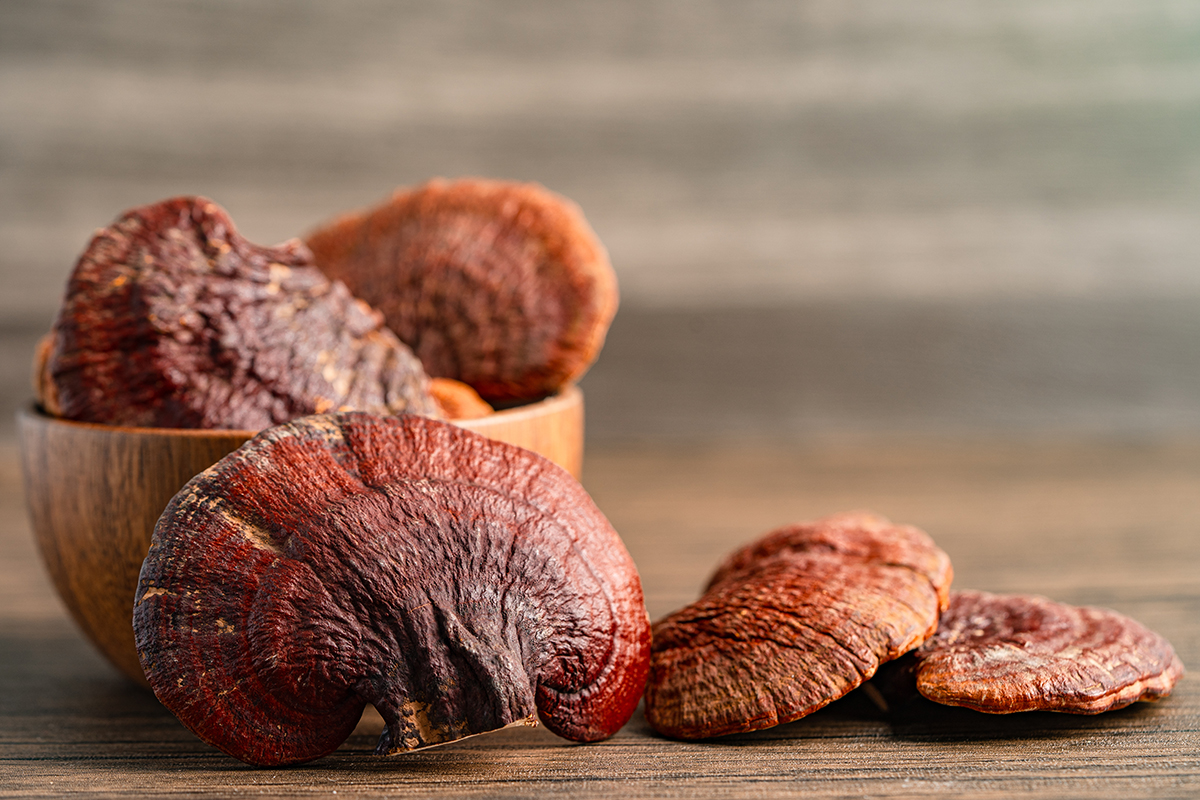
Dried lingzhi mushroom isolated on white background with clipping path.
by Ginny Cheek, Master Gardener
You may have heard of reishi mushrooms (Ganoderma Lingzhi), the so-called “queen of mushrooms” that some people claim can cure everything from cancer to insomnia. But what are they really, and why should you care?
Reishi mushrooms are a type of fungus that grow on decaying wood or tree stumps. They have a reddish-brown cap and a tough, woody stem. They look like something you would find in a fairy tale forest, or maybe in your grandma’s basement.
Reishi mushrooms have been used in traditional Chinese medicine for thousands of years. They are supposed to boost your immune system, lower your blood pressure, improve your liver function, and enhance your spiritual well-being. Sounds pretty good, right?
Well, not so fast. There is not much scientific evidence to back up these claims. Most of the studies on reishi mushrooms are done on animals or in test tubes, not on humans. And the ones that are done on humans are often small, poorly designed, or biased.
Plus, reishi mushrooms are not exactly tasty. They have a bitter, earthy flavor that is hard to swallow. Some people compare them to chewing on leather or cardboard. Yum!
When I found this beautiful reishi growing at the base of a tree, I cut it off the tree, cut it into thin slices and steeped it in water for reishi tea.
So, should you try reishi mushrooms? Well, that’s up to you. If you are curious and don’t mind the taste, you can find them in health food stores or online. You can take them as capsules, powder, tea, or extract. But don’t expect any miracles.
Reishi mushrooms may have some benefits, but they are not a magic bullet. They are not going to make you smarter, happier, or healthier overnight. They are just a fungus among us.
For more information on Mushrooms, consider joining the North American Mycological Association. For only $30 for non-affiliated members, you will receive six issues of The Mycophile, full access to their expanded website, and a standing invitation to all NAMA-sponsored forays. Members enjoy all the benefits NAMA has to offer, including our newsletter, The Mycophile, which is full of educational articles and news about upcoming forays. For further information and identification keys on many types of mushrooms, you might want to check out www.mushroomexpert.com.




